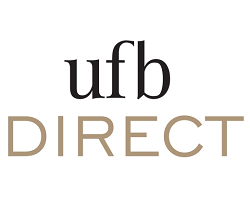Everyone wants a large savings account balance. It makes handling emergencies easier and it helps you achieve your long-term goals. But it’s not easy for the average person to pull off.
Even the typical 35-year-old who’s been in the workforce for several years doesn’t have as much in the bank as you might expect. Below, we’ll look at their median bank account balance and how you can beat it.
How much does the average 35-year-old have in their bank accounts?
A quick clarification before we get to the data: When most people say “average,” what they’re really talking about is the median (the middle point of a data set). It’s largely considered to be more useful when talking about personal finances than the true average, which is where you add up every data point and divide by the number of data points. Averages are easily skewed by large numbers, so we’ll be talking about median figures here.
The median transaction account balance for adults between the ages of 35 and 44 is $7,500, according to The Motley Fool Ascent’s research on average savings account balances.
Our Picks for the Best High-Yield Savings Accounts of 2024
|
American Express® High Yield Savings APY 4.25%
|
APY 4.25%
|
Min. to earn $1 |
|
UFB Portfolio Savings Account 
APY 5.15%
|
APY 5.15%
|
Min. to earn $0 |
|
Western Alliance Bank High-Yield Savings Premier 
APY 5.31%
Min. to earn $500 to open, $0.01 for max APY
|
APY 5.31%
|
Min. to earn $500 to open, $0.01 for max APY |
However, it’s worth noting that 35-year-olds are on the lower end of this age range. Given that average bank account balances tend to rise along with age, it’s likely that, with a further breakdown of data, we might find that 35-year-olds specifically have a slightly lower median balance than this.
It’s also worth calling out that these aren’t just savings account figures. These represent all the money in transaction accounts — checking accounts, savings accounts, money market accounts, call accounts, and prepaid debit cards. So while some of this money may be allocated for savings, there’s also a significant portion that likely flows in and out each month from earning income and paying bills.
How can you boost your bank account balances?
If you’re at or above the median bank account balances outlined above, congratulations! If not, don’t panic. You can try a few things to increase your wealth over time, like:
- Save more when possible: This is the most straightforward way to grow your wealth if you have extra cash on hand or can come up with some by reducing spending. Move this money to a savings account where it can earn you interest each month.
- Switch to an online bank: Online bank accounts usually don’t charge monthly maintenance fees that eat into your savings. They also tend to offer above-average interest rates, so you can grow your wealth more quickly.
- Consider a side hustle: When reducing spending isn’t feasible, increasing your income is another way to grow your wealth. Many side hustles these days enable you to work on your own schedule and from wherever you are, so you aren’t limited to an office building or normal working hours.
- Pay down high-interest debt: Credit card debt can balloon quickly due to high interest charges, so it’s best to tackle this first. Once it’s paid off, building your savings will be easier.
Even taking the above steps, it will likely still take time to build up your savings. That’s OK. Celebrate your milestones along the way and keep an eye out for new opportunities to grow your wealth.
These savings accounts are FDIC insured and could earn you 14x your bank
Many people are missing out on guaranteed returns as their money languishes in a big bank savings account earning next to no interest. Our picks of the best online savings accounts could earn you 14x the national average savings account rate. Click here to uncover the best-in-class accounts that landed a spot on our short list of the best savings accounts for 2024.

